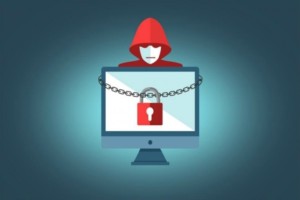Is your small business adequately protected from cyber attacks? Obviously, you are not at the same risk as certain government or military targets, but you should still adopt security measures and update those already in place. Your very livelihood could be at stake.
Many businesses are taking notice of the problem. According to a recent article in Forbes, annual cyber security spending is projected to reach the $170 billion mark worldwide by 2020. These measures range from rudimentary software programs to sophisticated firewalls and other high-level techniques.
Background: Essentially, cyber security is devoted to protecting the proprietary information of your firm from various online threats by hackers and other criminals. Because cyber crooks are becoming increasingly sophisticated, the threat is growing. With new and improving technology at their disposal, thieves have learned how to initiate automated attacks at reduced costs. Thus, keeping pace can pose a real challenge.
Cyber attacks take many forms, but here are several common elements to watch out for.
Malware: This is the name given to programs or files that can damage or invade computers and other devices. It includes intrusive methods such as worms, viruses, spyware and Trojan horses.
Ransomware: Ransomware is a version of malware that goes one step further by locking your system’s files, typically through encryption. As a result, the crook requires you to pay a “ransom” to decrypt the files and provide access.
Social engineering: As opposed to malware, social engineering is an attack launched through human interaction. Usually, a user is tricked or coerced into violating security procedures to make information available.
Phishing: This is a type of online fraud. In a common variation, you receive an email that looks like it was sent from a reputable and known source, often with a recognizable logo. The email asks you to click on a link. It enables the phisher to hook sensitive data like bank account or credit card logins.
How can you best protect your company? Unfortunately, there is no single proven method, nor does one size fit all. The best approach depends on your circumstances. Nevertheless, there are several practical suggestions you may follow.
- Be proactive instead of reactive. If you wait for cyber attacks to occur and then try to take action, it may be too late. Put a plan in place before any major occurrences.
- Do not assume that your current protections will continue to suffice. This is not a “one and done” situation. Keep security for all electronic devices–including computers, laptops, phones, tablets and servers–up to date. Change passwords regularly.
- Educate employees. They must know about all the risks and dangers. Warn them about clicking on links from sources that cannot be trusted. Emphasize security over expediency.
- Block cyber crooks through technological innovations. Unless you are experienced professional, rely on security experts to handle the details. Do not try to be a hero!
Last step: There are many products and services to choose from. If a professional is not managing cyber security internally, seek recommendations from your business advisers. You can also reach out to our JMF Technology Group.






Leave A Comment
You must be logged in to post a comment.